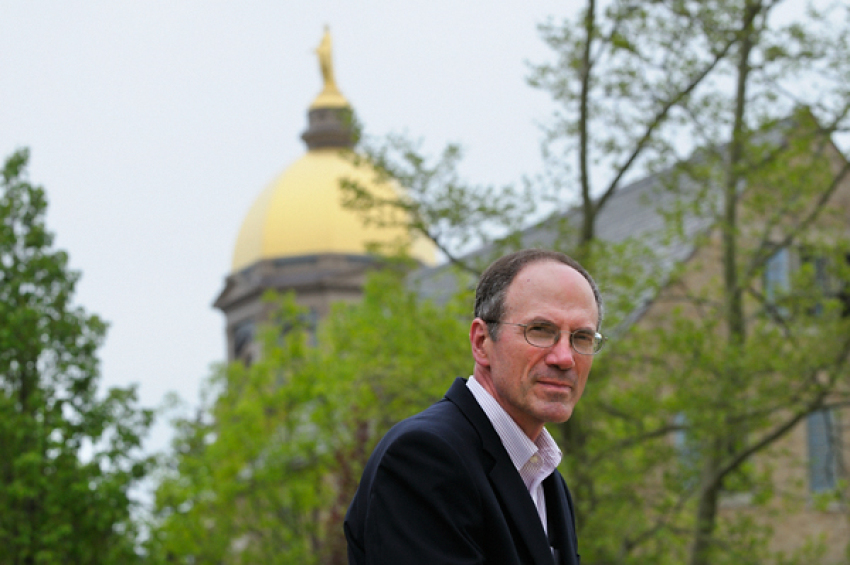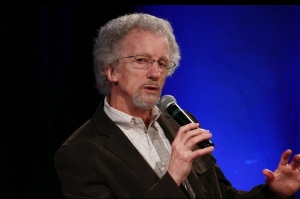Mark Noll's 'Scandal' 25 years later: Why Christianity requires your mind

“The scandal of the evangelical mind is that there is not much of an evangelical mind.” That stinging first sentence opens Mark Noll’s game-changing book, “The Scandal of the Evangelical Mind,” which was published 25 years ago this month.
In the book, Noll takes American Christianity to task for failing to obey Christ’s command to love God not just with our hearts, souls, and strength, but also with our minds.
He identifies ways in which American believers—especially conservative Protestants—abandoned the intellectual life and higher education, preferring experience and emotion.
“The Scandal of the Evangelical Mind” helped inspire the work of the Colson Center—Chuck Colson was a big fan of the book. In fact, a whole movement of organizations and authors took Noll’s critique to heart and began seriously promoting the idea of thinking Christianly.
Not only has there been a renewal of Christian interest in higher education, but also a partial recovery of the Church’s own intellectual heritage, including a renaissance of apologetics, ethics, classical schools, and of course, theology. We’ve come a long way in 25 years.
But there’s still so much work to be done. In fact, a frequent piece of feedback I get here at the Colson Center goes something like this: “All of this theology and worldview reading and talk about ideas is great, but when can we just get back to Jesus?”
This complaint echoes a popular internet video from a few years ago that urged folks to hate religion and just love Jesus. But who is this Jesus we’re supposed to love? And how would we know?
If you asked 100 professing Christians that question—who is Jesus?—I’m guessing most would list Christ’s biblical names and titles: the Lion of Judah, the Prince of Peace, the Son of Man, the Son of God, the Messiah, or most likely of all, “my personal Lord and Savior.”
And as true as those responses are, what do they mean? None of them, taken by itself, actually answers the question, “Who is Jesus?” In fact, without clarification and some sort of theological grounding, those titles will be misunderstood; they’ll be privatized, individualized conceptions of who Jesus is. As Depeche Mode sang, we end up with our own personal Jesus, someone who cares and hears our prayers, but otherwise doesn’t make too many demands of us.
This personal Jesus thing goes hand-in-hand with a popular retelling of the story of redemption, in which God sent Jesus to help us escape this world and go to Heaven, where we’ll finally be free from human concerns and responsibilities—like, for example, studying theology.
The gulf between this Jesus and the Jesus of Scripture really could not be wider. In the account of creation, fall, redemption, and restoration, we meet a Jesus who is not less than our personal Savior, but is certainly so much more.
He’s revealed to us as the culmination of a cosmos-sized unfolding drama in which God restores His creation and His image-bearers to His created design and intent.
He wants us to know this. He’s gone to great pains to make Himself known. Theology is the task of using our minds to engage with Scripture and Christian teaching about Who He is and what He is doing. In other words, theology is how we meet Jesus. It’s how to have a relationship with Him that’s based on truth and based in reality. By loving God with our minds, we learn how to live in this world in light of what He wants us to know.
All of this reminds me of something Dietrich Bonhoeffer wrote in his “Letters and Papers from Prison”:
“During the last year or so,” he explained, “I’ve come to know and understand more and more the profound this-worldliness of Christianity…I thought that I could acquire faith by trying to live a holy life…I discovered later, and I’m still discovering right up to this moment, that it is only by living completely in this world that one learns to have faith.”
Don’t mis-hear me. Time in prayer, time in worship, time in fellowship are indispensable to knowing God, but asking when we can wrap up all this worldview teaching and get back to Jesus is just another way of asking how we can ignore the real Jesus—the one who requires us to be fully engaged, mind and all, in loving Him and others in this world.
Resources
The Scandal of the Evangelical Mind, Mark A. Noll, Eerdmans Publishing Co., 1994
Originally posted at BreakPoint.


























